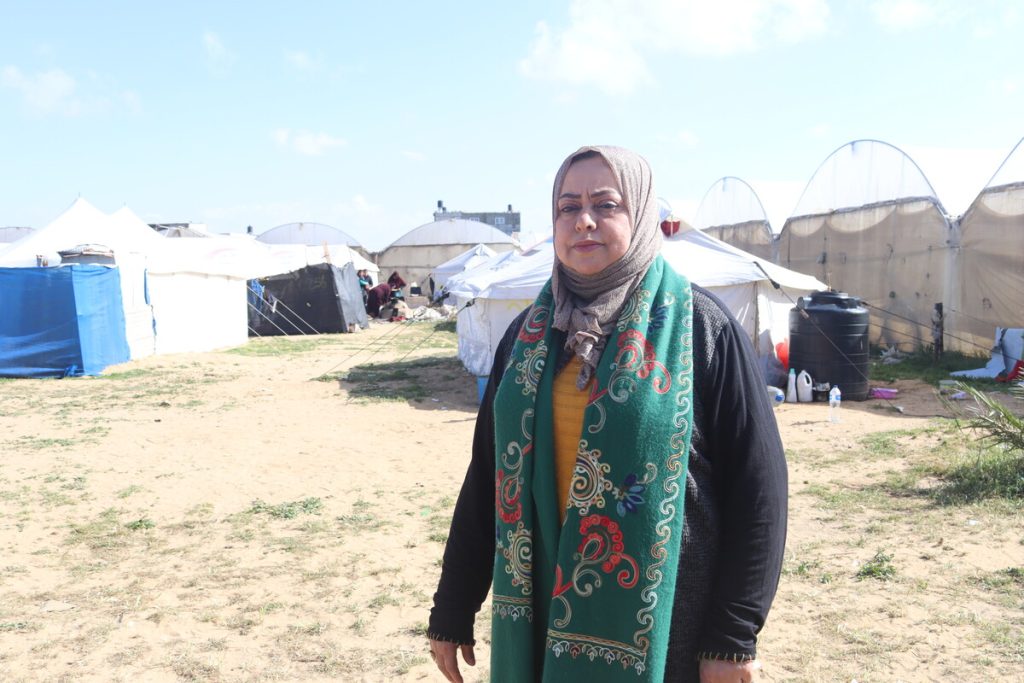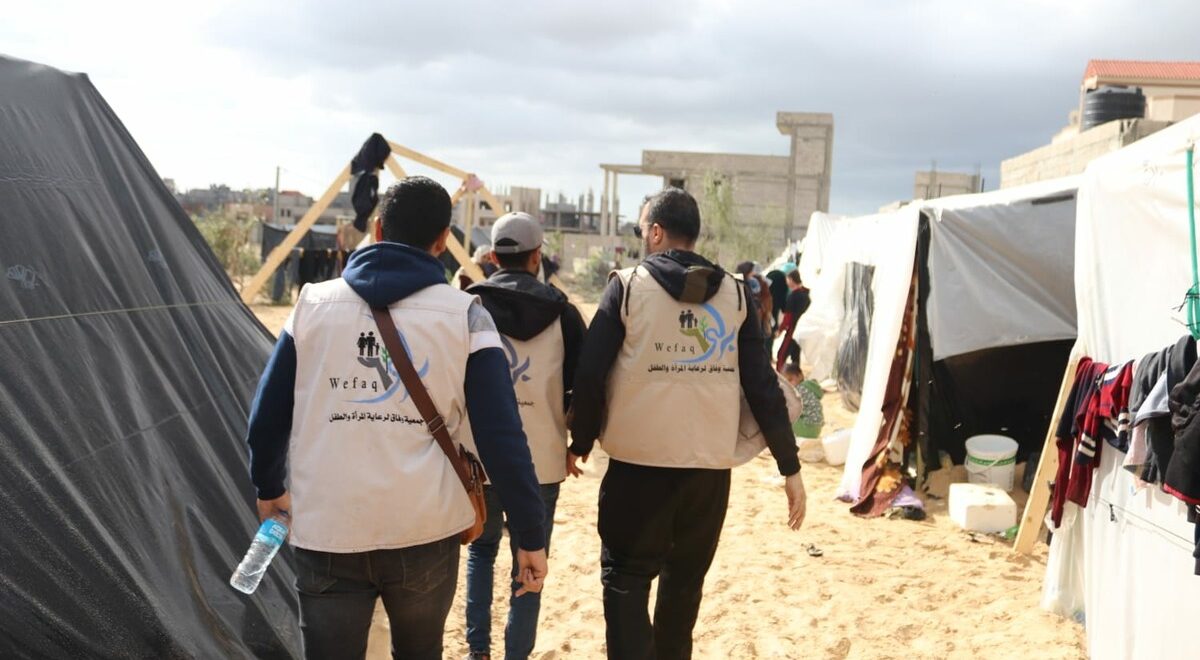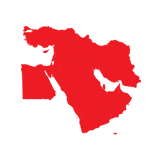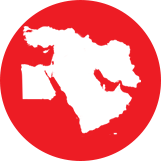On World Humanitarian Day, women aid workers in Gaza have described their fears and frustrations as they continue to face extreme danger amid relentless Israeli military attacks and huge logistical challenges in providing humanitarian relief due to aid access restraints. At the same time, the needs of the women and girls they support are increasing by the day, with ActionAid partners reporting a rise in cases of gender-based violence.

“I will not hide from you that most humanitarian workers, including myself, suffer from anxiety. We can’t sleep; we can’t have sound, uninterrupted sleep. Our sleep is intermittent as a result of the fear we all feel living in the Gaza Strip. Fear haunts us in every step we take to provide humanitarian aid.”
Buthaina, director of the WEFAQ Association for Women and Childcare (WEFAQ), ActionAid’s partner in Gaza
Gaza is now the world’s deadliest place for aid workers, with the death toll since October 7 standing at a record 287, according to UNOCHA. Humanitarian workers have allegedly been hit by Israeli airstrikes despite informing the Israeli authorities of their location, according to Human Rights Watch, while there have been repeated attacks on areas deemed so-called ‘safe zones’ where humanitarian workers are providing urgent care and support to 1.9 million internally displaced Palestinians across Gaza. Many aid workers have lost loved ones themselves yet have continued to support others despite their grief. One staff member at one of ActionAid’s partner organizations recently lost four children in an Israeli military attack, while another lost her husband and brother on the same day.
As the crisis drags on into its tenth month, women and girls in Gaza need support more than ever, as food, water, hygiene products, and medicines remain scarce, and deteriorating conditions put them at particular risk. Humanitarian workers are doing everything they can despite some of the worst conditions in the world, but they must urgently scale up their operations to be anywhere close to meeting the colossal needs of the population in Gaza.
Tasneem, 23, who works with the Palestinian NGO’s Network (PNGO), ActionAid’s partner in Gaza, said supporting others helped her cope with the horrors of the crisis. Having graduated from university just two months before October 7, she recently joined PNGO to work as a part-time translator and media advocate. She said:
“Palestinians or the local NGOs are the first responders for their people, especially in times of emergency. This motivates and inspires me to go and to persist, to keep going and to insist on delivering what I can do for my people with the available resources I have in my hand… Helping my people is a therapy that helps me to heal.”
Aseel works for WEFAQ, which supports people in Gaza, particularly women and girls, by providing essentials like food, hygiene products, and maternity kits, as well as running a hotline for those experiencing gender-based violence. She said:
“Women [have] faced so many violations, starting from violence due to the Israeli forces and the social violence. Women now became responsible for their families due to losing their husbands or because they are, for example, imprisoned or [have been] killed in this war. Sometimes they are facing some sexual exploitation and to get, for example, a food parcel to feed their children and so on.”
Yet despite the challenges, humanitarian workers in Gaza have proven remarkably resilient and able to adapt quickly and effectively as circumstances change, remaining unwaveringly dedicated to supporting those in need. Women humanitarian workers have been able to build trust and reach the women and girls who most require support, ensuring their needs are met.
Samira lives in the Al-Istiqama camp for displaced people in Deir al-Balah, which she helped set up. She now helps manage the camp, supporting the women and girls who are among the almost 2,000 people sheltering there and who – thanks to her efforts – have access to a medical point, education point, entertainment point, and psychological support. She said:
“I am proud of myself because I was able to manage things more than any young man. I can enter any tent and see what people need and see what women need…and [what] girls need…We want things to support women because women [suffer] a lot.”
Riham Jafari, Advocacy and Communications Coordinator at ActionAid Palestine, said:
“Today, we’re reminded of the immense suffering and selfless sacrifice of aid workers risking their lives daily to serve their communities across Gaza and the rest of the world. For too long, aid workers have courageously worked around the clock in Gaza while the international community sits on its hands as the death toll ticks ever higher. As global powers gather to discuss a deal that might end this senseless war, we are demanding that aid access in Gaza is urgently improved so that humanitarian workers can provide lifesaving relief to people in need. The only way to end the humanitarian crisis in Gaza is by ensuring the unfettered flow of aid through land crossings into Gaza. This can only be achieved through an immediate and permanent ceasefire.”
ENDS
For media requests, please email Christal.James@actionaid.org or call 704-665-9743.
Spokespeople are available.
About ActionAid
ActionAid is a global federation working with more than 41 million people living in more than 71 of the world’s poorest countries. We want to see a just, fair, and sustainable world, in which everybody enjoys the right to a life of dignity, and freedom from poverty and oppression. We work to achieve social justice and gender equality and to eradicate poverty.


